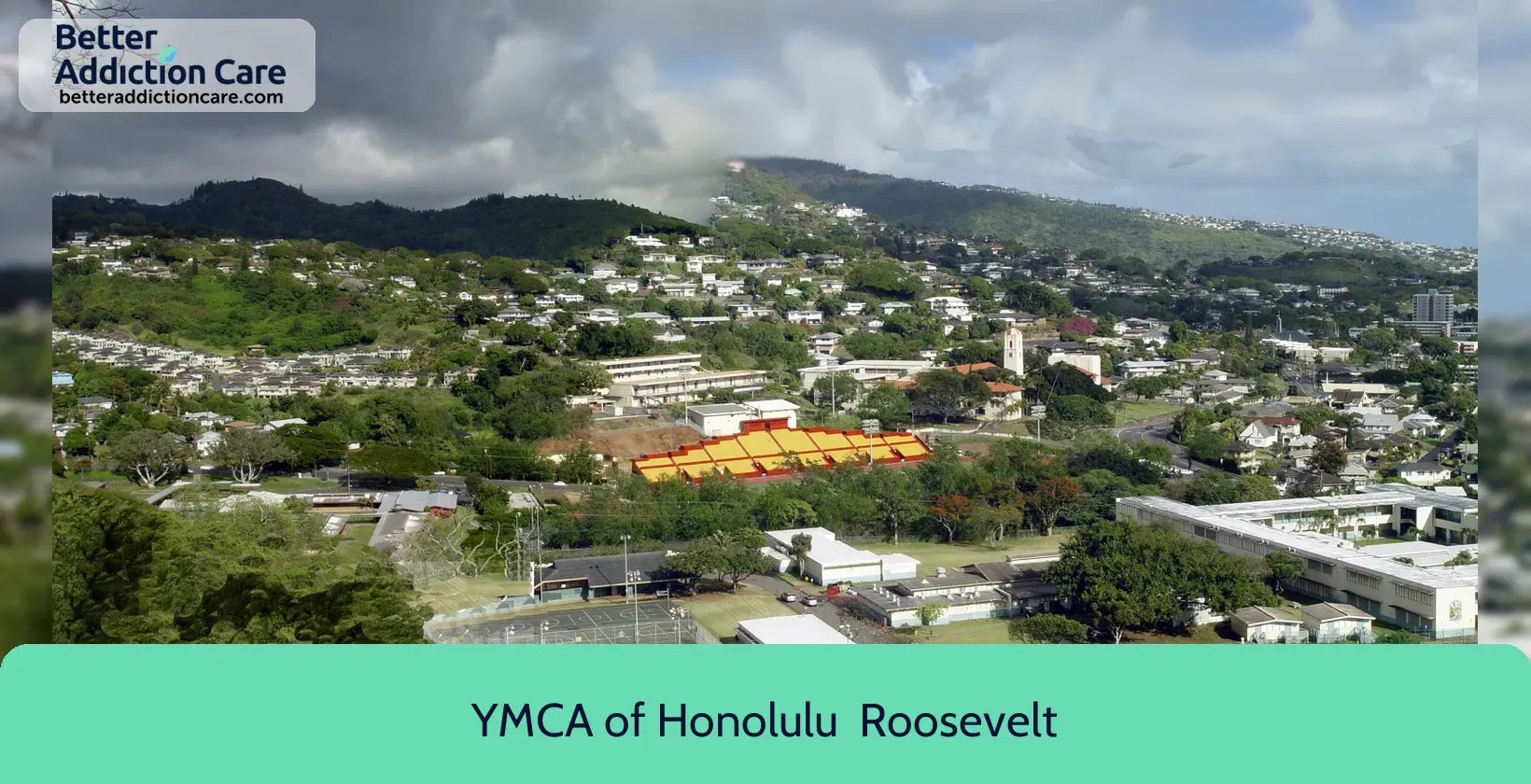YMCA of Honolulu - Roosevelt High School
Overview
YMCA of Honolulu - Roosevelt High School is a substance abuse treatment center for people seeking treatment near Honolulu County. As part of their treatment modalities for recovery, YMCA of Honolulu - Roosevelt High School provides group counseling, individual psychotherapy, and family counseling during treatment. YMCA of Honolulu - Roosevelt High School is located in Honolulu, Hawaii, accepting payment assistance (check with facility for details) for treatment.
YMCA of Honolulu - Roosevelt High School at a Glance
Payment Options
- Payment assistance (check with facility for details)
- No payment accepted
- State-financed health insurance plan other than Medicaid
- Federal, or any government funding for substance use treatment programs
Assessments
- Comprehensive mental health assessment
- Comprehensive substance use assessment
- Screening for tobacco use
- Interim services for clients
- Outreach to persons in the community
Age Groups
- Children/adolescents
- Adolescents
- Young adults
- Adults
- Seniors
Ancillary Services
- Case management service
- Child care for client's children
- Social skills development
- Transportation assistance
Highlights About YMCA of Honolulu - Roosevelt High School
7.02/10
With an overall rating of 7.02/10, this facility has following balanced range of services. Alcohol Rehabilitation: 8.00/10, Drug Rehab and Detox: 6.00/10, Insurance and Payments: 6.00/10, Treatment Options: 8.06/10.-
Treatment Options 8.06
-
Alcohol Rehabilitation 8.00
-
Drug Rehab and Detox 6.00
-
Insurance and Payments 6.00
Treatment At YMCA of Honolulu - Roosevelt High School
Treatment Conditions
- Mental health treatment
- Alcoholism
- Opioid Addiction
- Substance use treatment
- Co-occurring Disorders
Care Levels
- Detoxification
- Aftercare
- Outpatient
- Intensive outpatient treatment
- Regular outpatient treatment
Treatment Modalities
- Group counseling
- Individual psychotherapy
- Family counseling
- Life Skills
- Trauma-related counseling
Ancillary Services
Languages
- Sign language services for the deaf and hard of hearing
Special Programs
- Clients with HIV or AIDS
- Clients who have experienced trauma
Contact Information
Read our Most Recent Article About Drug Addiction
DISCLAIMER: The facility name, logo and brand are the property and registered trademarks of YMCA of Honolulu - Roosevelt High School, and are being used for identification and informational purposes only. Use of these names, logos and brands shall not imply endorsement. BetterAddictionCare.com is not affiliated with or sponsored by YMCA of Honolulu - Roosevelt High School.









